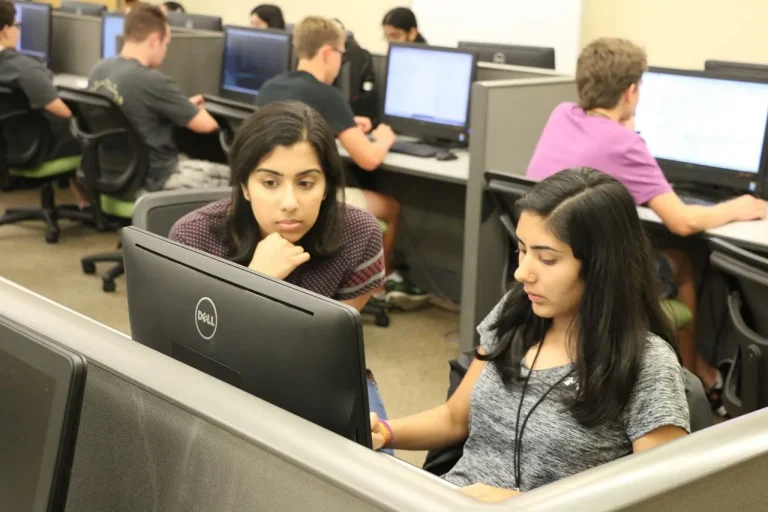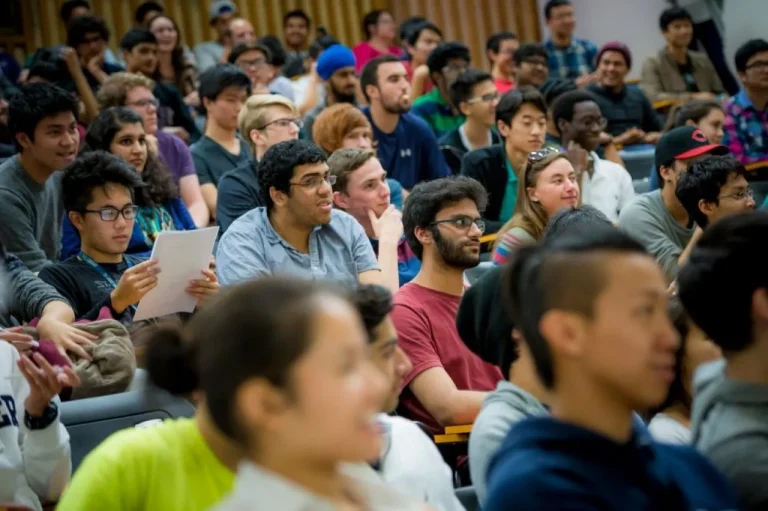Difference Between Computer Science And Computer Programming
In today’s digital world, computer science and computer programming are often used interchangeably. However, while related, these two fields have distinct differences. If you’re short on time, here’s a quick answer to your question: Computer science is the study of computers and computational systems, while computer programming is the process of designing and building software.
In this comprehensive guide, we will examine the key differences between computer science and computer programming in detail. We will look at the origins and goals of each field, the types of work involved, the training required, and the career prospects.
Origins and Goals
Computer Science
Computer Science is a field that originated in the mid-20th century as a response to the growing need for automated computation. It encompasses the study of algorithms, data structures, and the principles behind computer systems.
The goal of computer science is to develop new technologies and methodologies that advance the field of computing and solve complex problems.
Computer scientists are involved in a wide range of research and development activities. They may work on designing new programming languages, creating artificial intelligence systems, or developing algorithms for data analysis.
Their work often involves pushing the boundaries of what computers can do and finding innovative solutions to computational problems.
To learn more about computer science, you can visit ACM (Association for Computing Machinery) or IEEE Computer Society websites.
Computer Programming
Computer programming, on the other hand, is a subset of computer science that focuses on writing instructions for computers to execute. It involves the creation of software programs using programming languages such as Python, Java, or C++.
The goal of computer programming is to develop applications or software that perform specific tasks.
Computer programmers are responsible for translating the ideas and requirements of computer scientists into functional code. They write, test, and debug programs to ensure they function correctly. Programmers also need to have a good understanding of algorithms and data structures to optimize the efficiency of their code.
If you want to delve deeper into computer programming, websites like W3Schools or Stack Overflow provide valuable resources and a community of developers to learn from.
While computer science and computer programming are related, it is important to understand the distinction between the two. Computer science focuses on the theoretical and conceptual aspects of computing, while computer programming is the practical application of those concepts.
Types of Work
Computer Science Work
Computer science work involves a wide range of tasks that focus on the theoretical and practical aspects of computing. Computer scientists are involved in researching, designing, and developing new technologies and algorithms to solve complex problems.
They work on creating innovative software systems, developing artificial intelligence, designing computer networks, and much more. Computer scientists often work in academic settings, research labs, or technology companies.
Computer science work requires a deep understanding of mathematics, algorithms, and problem-solving skills. They are responsible for analyzing and optimizing algorithms, developing new programming languages, and creating efficient and secure software systems.
Computer scientists often collaborate with other professionals to create cutting-edge technologies and push the boundaries of what is possible in the field of computing.
For more information on computer science work, you can visit websites like ACM.org and Computer.org.
Computer Programming Work
Computer programming work, on the other hand, focuses on writing code and creating software applications. Programmers are responsible for implementing the designs and algorithms created by computer scientists.
They work with programming languages like Java, Python, C++, and many others to write code that instructs the computer to perform specific tasks.
Computer programmers work closely with software engineers and developers to create, test, and debug software applications. They are responsible for ensuring that the code they write is functional, efficient, and error-free.
Programmers often specialize in specific programming languages or frameworks and can work in a variety of industries, including software development companies, IT departments, or as freelancers.
For more information on computer programming work, you can visit websites like ProgrammersHeaven.com and FreeCodeCamp.org.
Training and Education
Computer Science Education
Computer science is a field that combines theory, algorithms, and problem-solving to develop software and hardware solutions. Individuals pursuing a career in computer science typically need to obtain a bachelor’s degree in computer science or a related field.
Computer science education focuses on both theoretical and practical aspects of computing. Students learn about algorithms, data structures, programming languages, software engineering, artificial intelligence, and computer architecture.
They also gain knowledge in areas such as mathematics, logic, and computer networks.
Computer science programs often require students to complete projects and participate in internships to gain hands-on experience. This allows them to apply their theoretical knowledge to real-world problems and develop practical skills that are in demand in the industry.
Computer Programming Education
Computer programming, on the other hand, is a subset of computer science that focuses on writing code to create software programs. While computer science provides a broader understanding of the field, computer programming education is more focused on the practical aspects of coding.
There are various paths to becoming a computer programmer. Some individuals pursue a bachelor’s degree in computer science or a related field, while others may opt for coding bootcamps, online courses, or self-study.
The level of education required may vary depending on the specific job requirements and the complexity of the programming tasks involved.
Computer programming education typically involves learning programming languages such as Python, Java, C++, and JavaScript. Students also acquire knowledge of software development methodologies, debugging techniques, and software testing.
While a computer science education provides a solid foundation for a career in programming, individuals focused solely on computer programming may choose to specialize in a specific programming language or technology to enhance their skills and marketability.
It’s important to note that both computer science and computer programming education are continually evolving fields. New programming languages, frameworks, and technologies emerge regularly, making it necessary for professionals to stay updated with the latest trends and advancements in the industry.
Career Prospects
Computer Science Careers
Computer Science offers a wide range of exciting career opportunities. Graduates in this field can pursue careers in software development, data analysis, artificial intelligence, robotics, cybersecurity, and much more.
Computer scientists are in high demand across industries such as technology, finance, healthcare, and government. According to the Bureau of Labor Statistics, the employment of computer and information research scientists is projected to grow by 15% from 2019 to 2029, much faster than the average for all occupations.
This growth is driven by the increasing reliance on technology and the need for professionals with advanced technical skills.
Some popular computer science careers include:
- Software Developer: These professionals design, develop, and test software applications for various platforms. They work on creating user-friendly interfaces and solving complex problems through programming.
- Data Scientist: Data scientists analyze large datasets to identify patterns, make predictions, and provide valuable insights to businesses. They use statistical analysis and machine learning techniques to extract meaningful information from data.
- Cybersecurity Analyst: With the rise in cyber threats, there is a growing demand for cybersecurity professionals. These experts protect computer systems and networks from unauthorized access, malware, and other potential risks.
Computer science careers offer excellent job prospects, competitive salaries, and opportunities for growth and advancement. The constantly evolving nature of technology ensures that computer science professionals have a dynamic and challenging work environment.
Computer Programming Careers
Computer programming, on the other hand, focuses more on the development and implementation of software applications and systems. While computer science and computer programming are closely related, programming is a subset of computer science.
However, computer programming offers its own set of career opportunities and prospects.
Some popular computer programming careers include:
- Software Engineer: These professionals design, develop, and maintain software systems. They write code, debug programs, and collaborate with teams to deliver high-quality software solutions.
- Web Developer: Web developers create and maintain websites by writing code using programming languages such as HTML, CSS, and JavaScript. They ensure that websites are visually appealing, functional, and user-friendly.
- Mobile App Developer: With the increasing usage of smartphones, mobile app developers are in high demand. They create applications for iOS and Android platforms using programming languages like Swift and Java.
Computer programming careers offer opportunities for creativity, problem-solving, and innovation. These professionals have the ability to bring ideas to life through coding and play a crucial role in shaping the digital world we live in today.
Conclusion
In summary, while computer science and computer programming are complementary fields, they have distinct origins, goals, work, training requirements and career opportunities. Computer science focuses on the theoretical foundations of computing while programming deals with practical software development.
Both remain dynamic, in-demand career paths in our technology-driven world.







